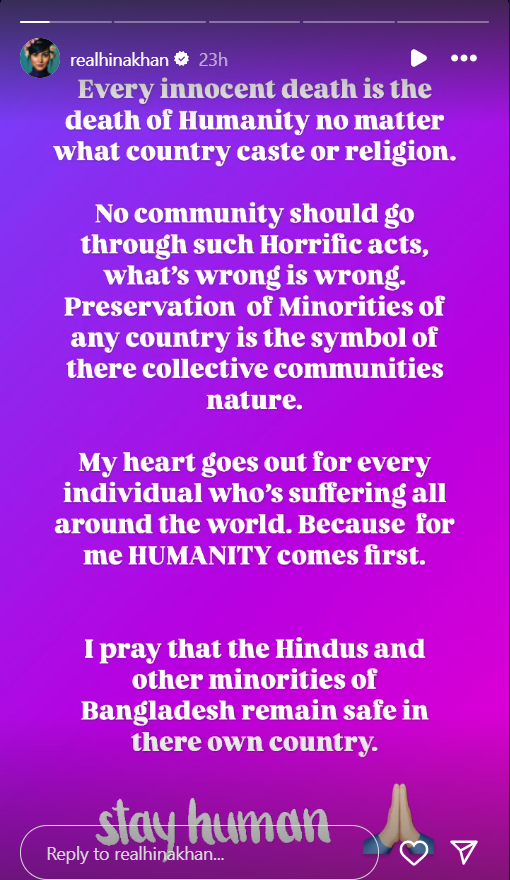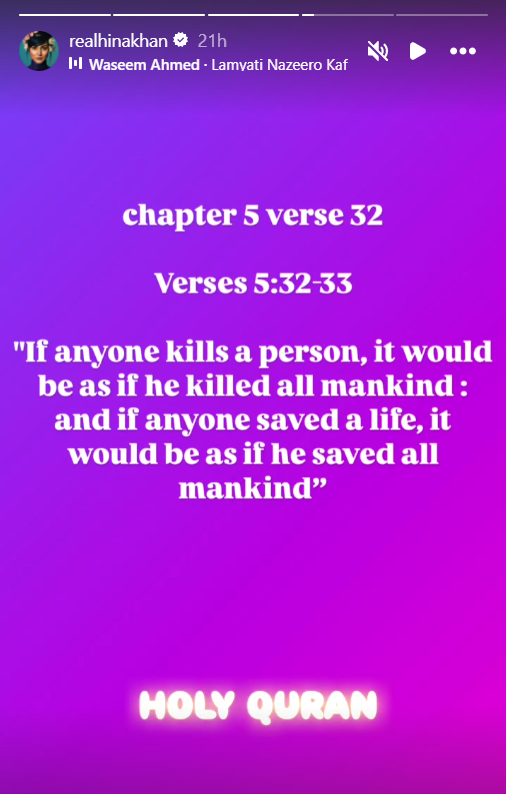Hina Khan Condemns Attack On Hindus Amid Bangladesh Unrest: ‘What’s Wrong Is Wrong’

Bangladesh’s political landscape underwent a dramatic shift last week as Sheikh Hasina, the country’s longest-serving prime minister, resigned and fled after 15 years in power. Her departure comes in the wake of widespread protests led by young Bangladeshis who accuse her of increasingly autocratic rule, suppressing dissent, favoring the elite, and deepening social inequalities.
As the unrest in Bangladesh continues to make headlines, Indian actors have begun to voice their concerns, particularly regarding violence against minorities in the country. On Sunday, actor Hina Khan took to Twitter to condemn the reported violence against Hindus and other minority groups in Bangladesh.

“Every innocent death is the death of humanity, no matter what country, caste, or religion. No community should go through such horrific acts; what’s wrong is wrong. Preservation of minorities in any country is the symbol of their collective community’s nature,” Khan wrote.
Khan, who is currently undergoing treatment for breast cancer, also expressed her solidarity with those affected. “My heart goes out to every individual who’s suffering all around the world. Because for me, humanity comes first. I pray that the Hindus and other minorities of Bangladesh remain safe in their own country,” she added.

Kangana Ranaut Remarks
Before Hina Khan’s comments, actor and BJP MP Kangana Ranaut also weighed in on the situation, linking the violence in Bangladesh to broader issues in Islamic republics. When asked by reporters about the situation, Ranaut remarked, “No one is safe in Muslim countries, not even Muslims themselves. It’s unfortunate what is happening in Afghanistan, Pakistan, Bangladesh, and even Britain. We are lucky to be living in Ram Rajya.”

Ranaut also took to social media, stating, “Bharat is the original motherland of all Islamic Republics around us. We are honored that the honorable Prime Minister of Bangladesh feels safe in Bharat, but for those who question why Hindu Rashtra? Why Ram Rajya? Well, it is evident why!”
The comments by the actors reflect growing concern over the escalating violence in Bangladesh and the broader implications for regional stability.


